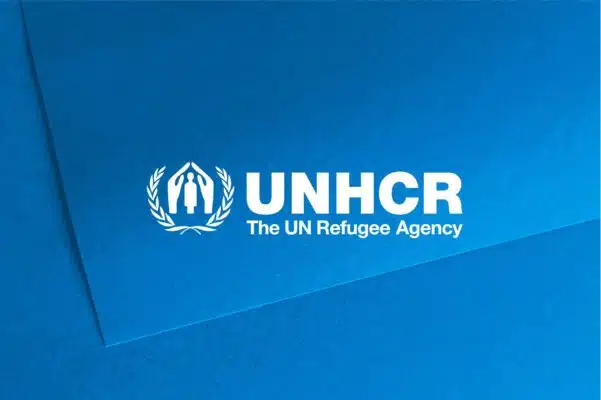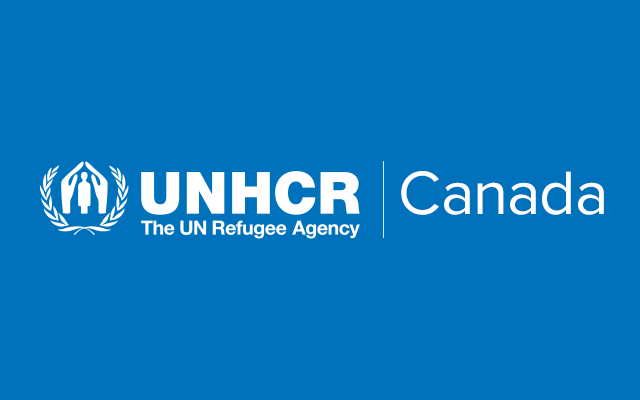
Women and children sit in a shelter in March 2024 at a site in Soucoura, Mali, hosting refugees from Burkina Faso who fled violence. © UNHCR/Insa Wawa Diatta
This is a summary of what was said by Abdouraouf Gnon-Konde UNHCR’s Director of the Regional Bureau for West and Central Africa – to whom quoted text may be attributed – at the press briefing at the Palais des Nations in Geneva.
GENEVA – About 4 million people are now displaced across Burkina Faso, Mali, Niger and neighbouring countries – around two-thirds more than five years ago – reflecting insecurity, limited access to services and livelihoods, and the effects of climate change.
While most displaced people in the region remain within their countries, cross-border movements are becoming more frequent, putting pressure on host communities and national systems. These onward movements highlight the urgent need to expand scant assistance and enable people to remain closer to home, avoiding dangerous journeys.
The insecurity across the region is exposing people to violence, forced recruitment, movement restrictions and arbitrary detention. Women and children represent 80 per cent of forcibly displaced people in the region, and gender-based violence remains a critical and pervasive concern. According to the West and Central Africa inter-agency protection monitoring system, the number of people impacted by such incidents has significantly increased this year.
Over 14,800 schools had closed in the region by mid-2025, leaving 3 million children without access to learning or safe spaces. Forcibly displaced youth face increased protection and livelihood challenges, including forced recruitment, trafficking and limited access to job opportunities, increasing the risk of taking dangerous journeys beyond the region.
Across the region, over 900 health facilities have also been forced to close, leaving millions without critical care.
Food insecurity has become a growing driver of displacement; the share of displaced people and host community members citing it as a cause for their movement has doubled in recent years. Climate-related shocks further amplify risks, intensifying competition over scarce natural resources such as land and water, creating additional barriers to peaceful coexistence and social cohesion with host communities.
UNHCR’s priority is to strengthen protection, inclusion, resilience and solutions – supporting states and communities in managing displacement while fostering stability and self-reliance.
However, humanitarian access and funding are both strained. In the Sahel, humanitarian needs have risen sharply while resources have declined significantly since 2022. In 2025, UNHCR requires $409.7 million to cover humanitarian needs in Sahel countries, but has only raised 32 per cent of this total. Critical activities including registration, documentation, education, health and shelter have been drastically impacted.
Over 212,000 refugees and asylum-seekers in Burkina Faso, Mali and Niger are not yet registered, limiting their access to essential services and heightening their risks of arbitrary detention and harassment.
Despite these challenges, communities across the Sahel demonstrate resilience and solidarity. UNHCR data shows that in Mali, 90 per cent of displaced people feel a strong sense of integration, with local communities generously sharing land and resources. In Burkina Faso, local conflict-resolution mechanisms support coexistence between displaced and host populations.
All Sahel countries are parties to the 1951 Refugee Convention and its 1967 Protocol, and have adopted national asylum laws that provide a framework for refugee status determination and inclusion, including the right to work and freedom of movement. All have also ratified the Kampala Convention on internal displacement.
UNHCR is calling for a renewed and strengthened international commitment to address the crisis in the central Sahel. Countries in the region cannot face these challenges alone. Protecting millions of displaced families and securing a safer future demands more than words; it requires unified, sustained international action and true solidarity with the Sahel.
For more information, please contact:
- In Dakar (regional), Senan Rose Fidelia Bohissou, bohissou@unhcr.org, +221 77 569 91 60
- In Geneva, Eujin Byun, byun@unhcr.org, +41 79 747 8719
Originally published by UNHCR on 10 October 2025





